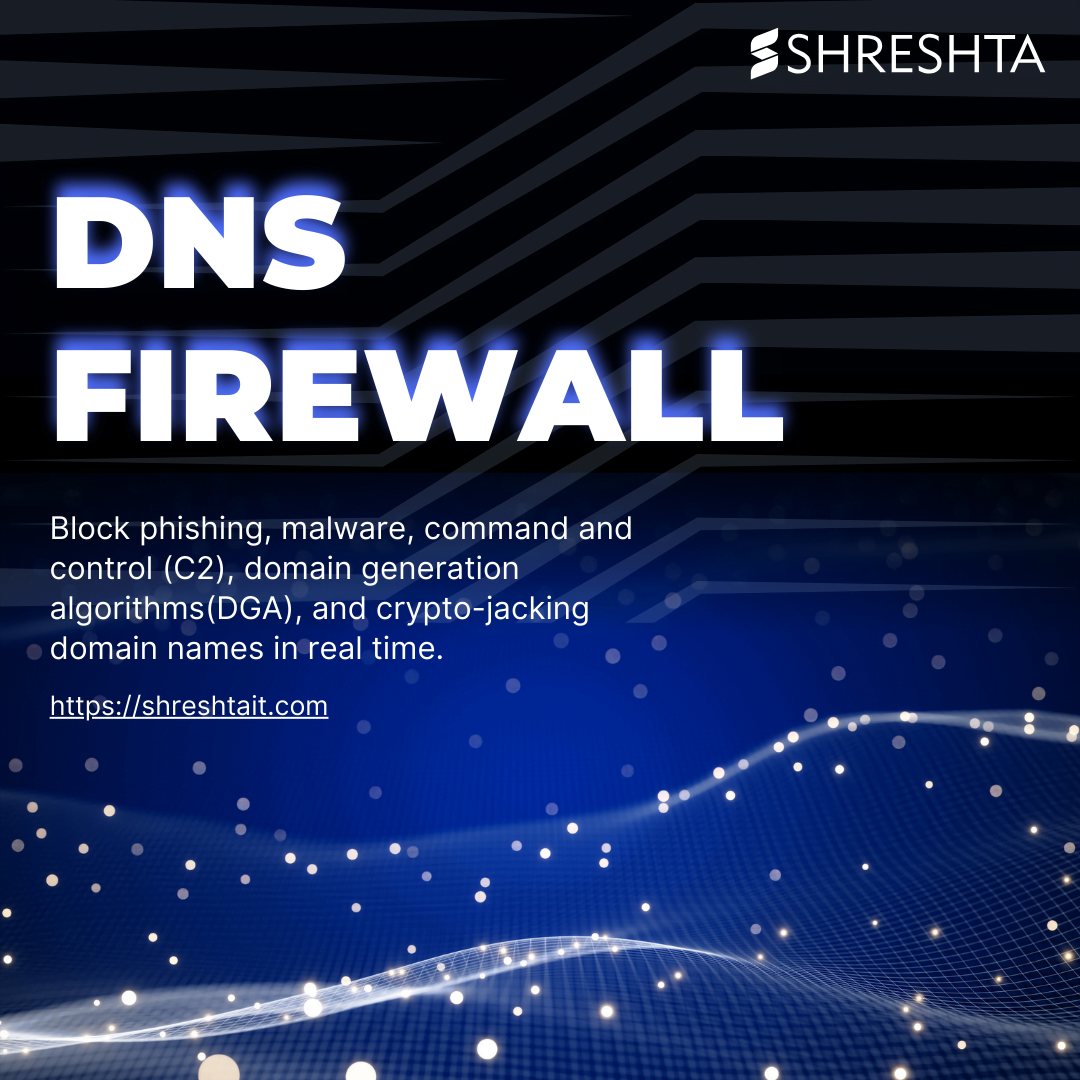A DNS firewall also known as Protective DNS is an enterprise network security solution. It filters and manages DNS queries and responses.
It protects organizations from cyber threats. These threats include phishing, malware, cryptojacking, domain generation algorithms(DGA), command and control (C2) domain names. It determines which domain names users can access based on set rules or policies.
How does a DNS Firewall work?
Protective DNS works by filtering and monitoring incoming and outgoing DNS traffic to protect against cyber threats.
It acts as a security gateway between your network and the internet.
Here’s how it works:
When a user accesses a domain name, the Protective DNS checks the request against a list of known malicious domains. If a match is found, the request is blocked, preventing access to the malicious site.
It also inspects the DNS responses coming back from the internet. If it detects any abnormal or suspicious responses, it blocks them, preventing phishing, malware, command and control, cryptojacking, domain generation algorithms and other threats from entering your network.
By continuously analyzing DNS traffic, Protective DNS helps enhance network security and provides an additional layer of protection against cyber threats.
Role of Threat Intelligence

Threat intelligence plays a crucial role in enhancing the effectiveness of a DNS firewall by providing valuable information about potential threats, enabling the firewall to make informed decisions and protect your network more efficiently.
Shreshta DNS Firewall is integrated with real-time threat intelligence feeds of phishing, malware, command & control (C2), domain generation algorithms(DGA), cryptojacking and newly registered domain names.
Benefits of Protective DNS
A DNS firewall offers several benefits for organizations, including:
- Protection against phishing attacks: By blocking access to known phishing domains, Protective DNS can help prevent users from falling victim to email scams and other social engineering attacks.
- Malware protection: Protective DNS can block access to known malicious IP addresses associated with various types of malware, such as viruses, worms, and Trojans.
- Improved network performance: By caching frequently accessed domain names, a DNS firewall can help reduce the latency and improve the overall performance of your network by reducing the number of queries sent to external DNS servers.
- Enhanced security policy control: A DNS firewall allows administrators to set up granular policies that restrict access to specific websites or categories based on user, group, or time of day.
- Real-time threat intelligence: By integrating with threat intelligence feeds, a DNS firewall can help organizations stay informed about the latest threats and quickly adapt to emerging risks by updating its filtering rules in real-time.
Discover how Shreshta DNS Firewall powers the CySecks Browse Safe initiative, safeguarding Karnataka’s citizens against cyber threats.

